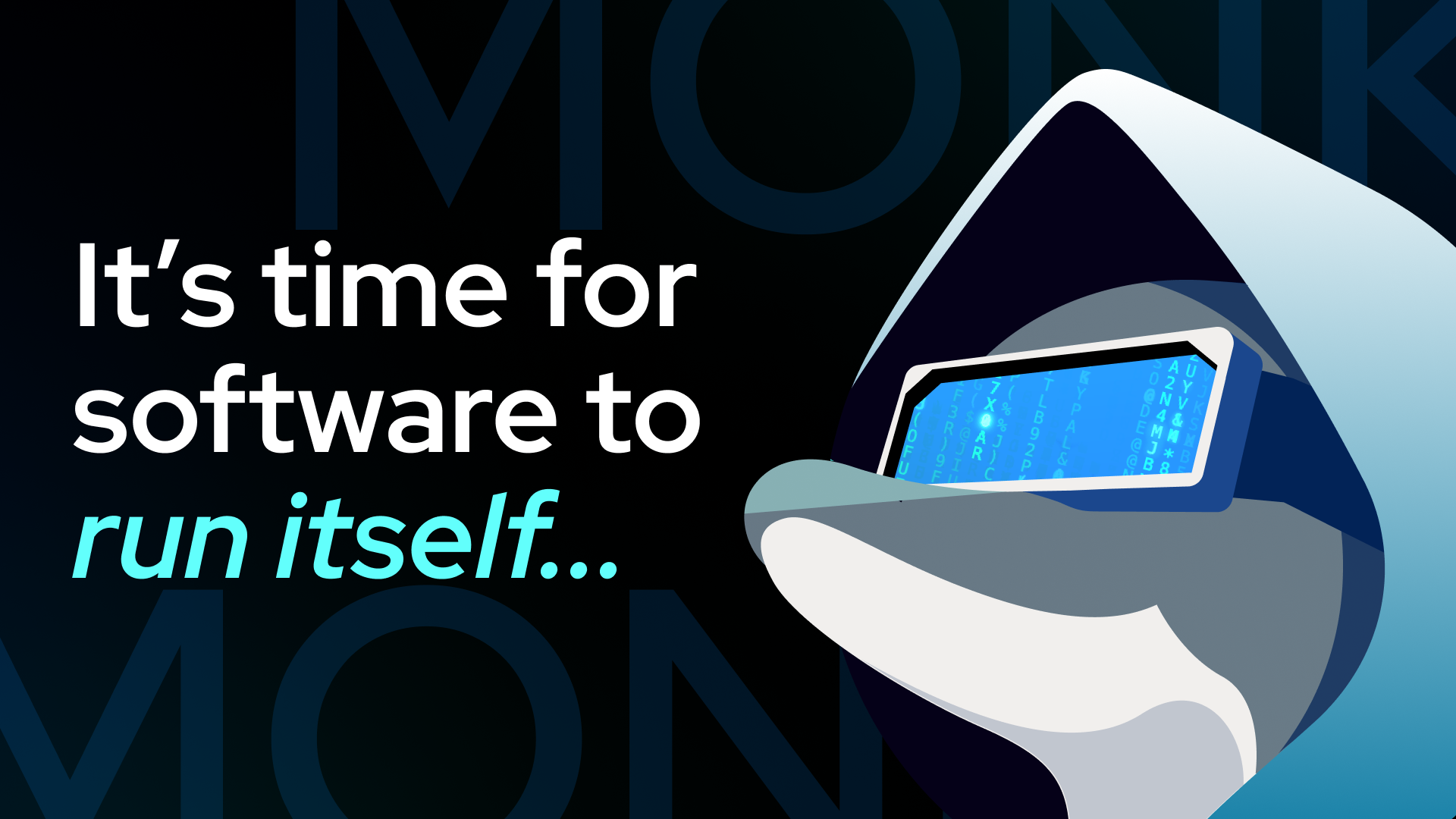
It's time for software to run itself.
TL;DR: Monk is the autonomous DevOps agent that enables self-running software.
Software is increasingly writing itself. But software only creates value when it runs and people can use it. At Monk, we unlock this value by enabling software to run itself.
AI writes software, AI should run it
In mere months, we went from developers writing all the code manually to GitHub Copilot generating billions of lines of code that developers now simply accept; Cursor creating complex functions from natural language; and Lovable allowing non-technical users to build apps from prompts. We collectively let AI write our software, it's time to let AI to run our software too.
Run Monk Run
Monk is the autonomous DevOps agent with a singular focus: take any code and run it optimally, at all times —period.
Monk operates directly in VS Code as a chat participant alongside GitHub Copilot and other assistants. Unlike tools that just suggest, Monk takes direct action based on its understanding.
Monk doesn't just tell you what to do with your code, it does the work for you.
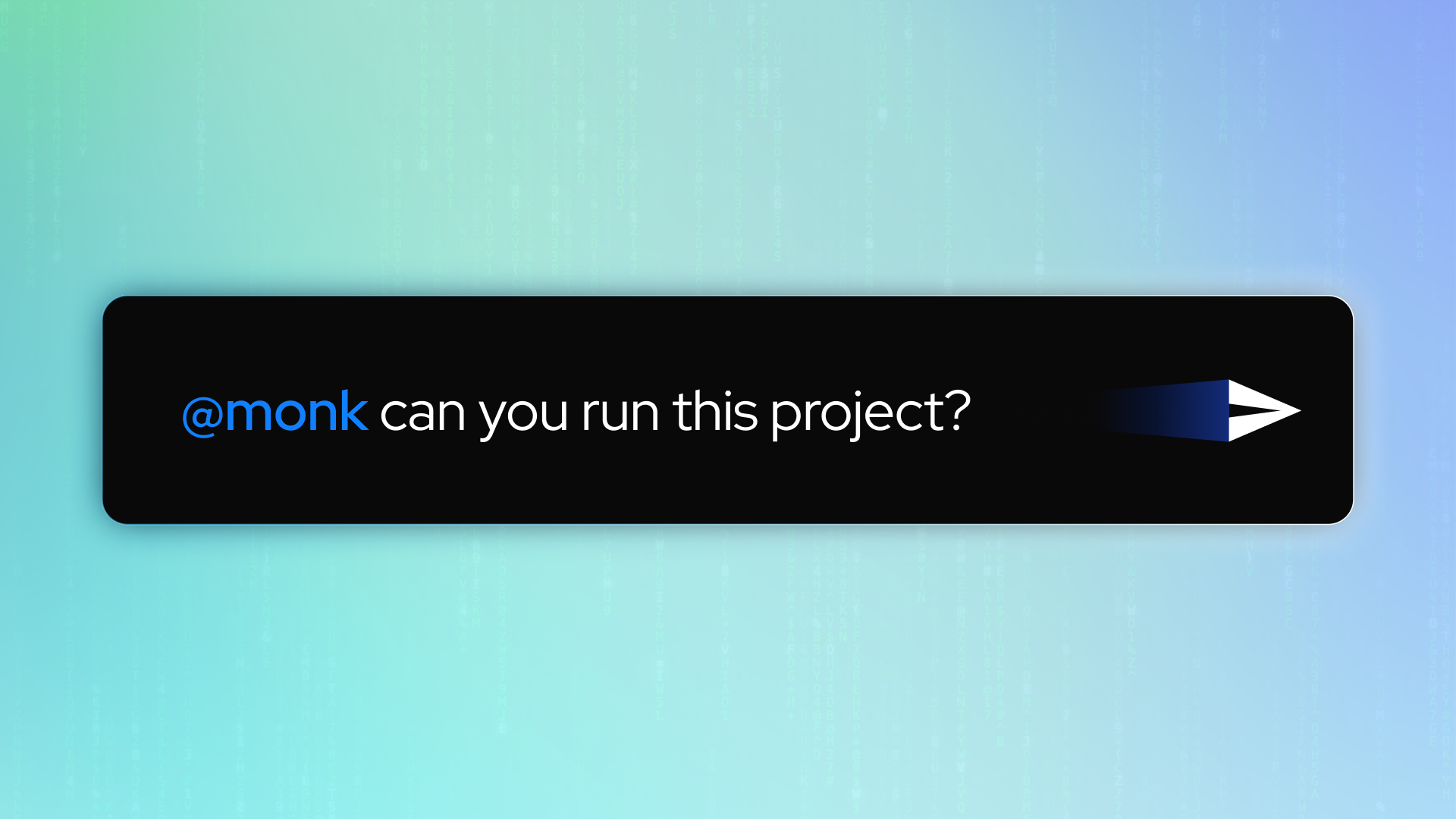
Just type @monk run in VS Code chat and watch multiple specialized agents spring to life that: analyze your project, identify services and connections, discover runtime dependencies, check existing configs, find 3rd party services, write missing Dockerfiles, run and test the containers, writes full deployment config, sizes required infrastructure, creates VMs in your favourite cloud, configures secure networking, sets up secret storage, provisions volumes and LBs, pushes container images, runs containers in the right order, connects services together... and more. Monk can deploy to any cloud (GCP, AWS, DO, Azure) or PaaS.
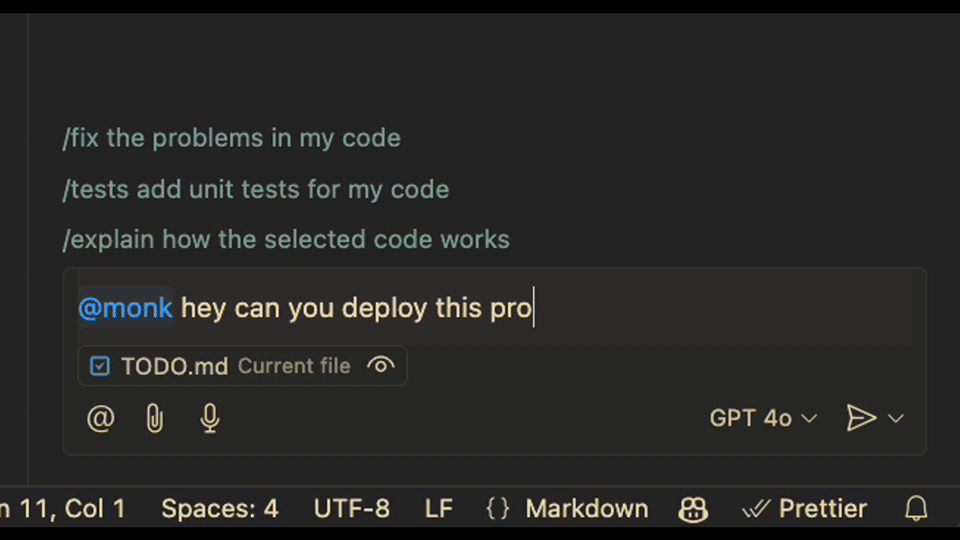
You can chat to Monk in natural language and ask about monitoring, analyze the logs, deploy with custom configuration and many more.
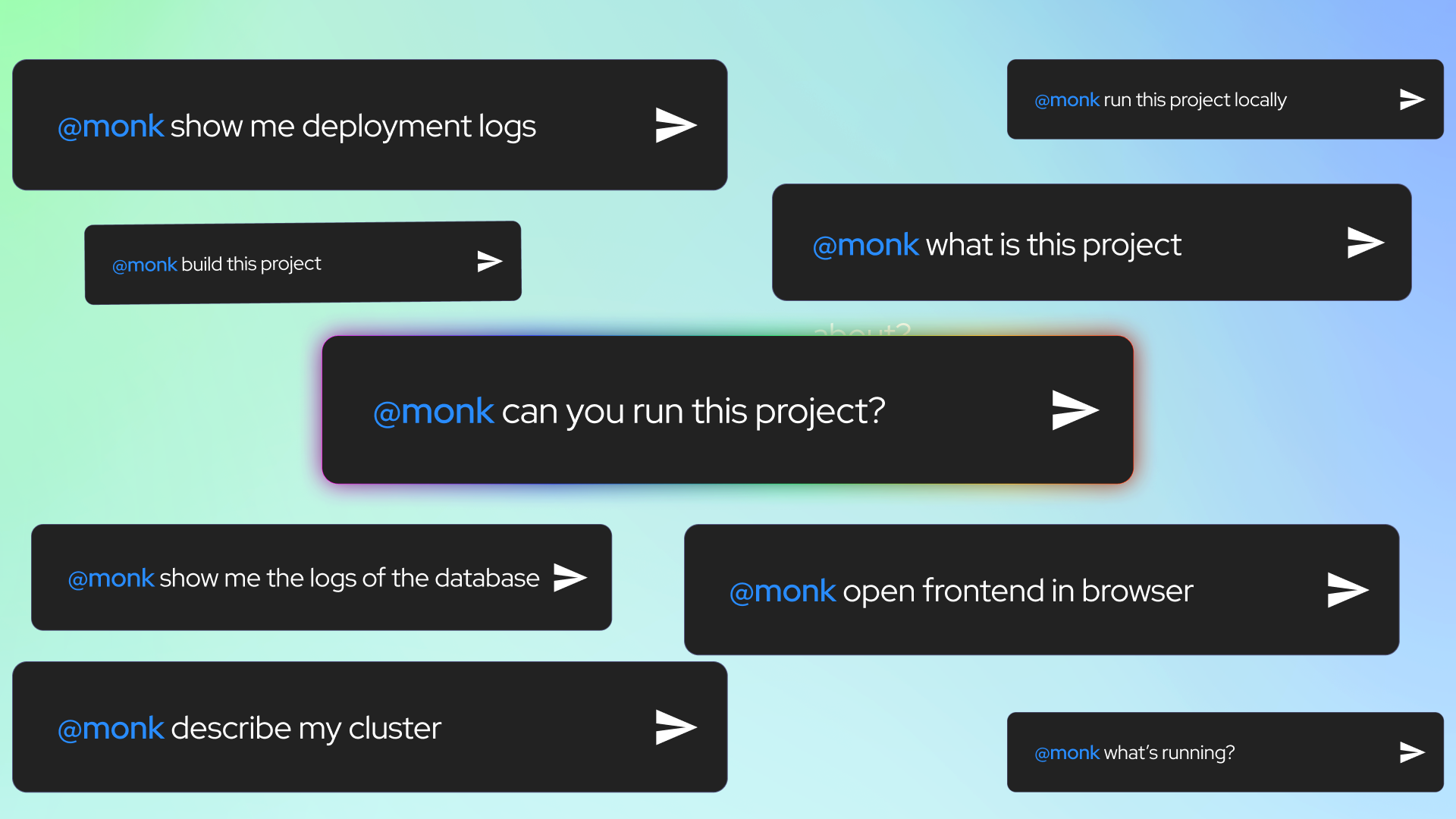
Agents alone can’t run software
Letting AI run your infrastructure requires trust.
With infrastructure operations, the stakes are higher than code generation - while AI coding assistants can endlessly iterate with minimal consequences, infrastructure operations allow no second chances. You simply cannot have an agent accidentally switch off your production database and then "self-correct."
For software to be able to run itself, it needs more than just AI.
- Systems need complete real-time context and awareness of all components and their dynamic interactions.
- Every agent's action must pass through rigorous validation before execution.
- AI strategy and technical implementation must be strictly separated, with AI doing the planning and operating in natural language but never directly execute critical infrastructure commands.
The fragmentation of today's DevOps landscape makes this impossible to achieve all the above through APIs alone. There are thousands of disconnected tools and infrastructure components, each with narrow context and partial system visibility. For instance, Kubernetes understands containers but not infrastructure; Terraform knows infrastructure but not containers. These tools were designed for human operators who intuitively grasp context and consequences. AI alone can’t reliably understand relationships in complex dynamic systems.
Collectively, the industry is realizing that simply allowing non-deterministic AI agents to directly interface with this fragmented ecosystem and infrastructure is fundamentally unsafe. Agents alone can’t reliably handle secrets, provisioning or maintain consistent operations across complex infrastructures.
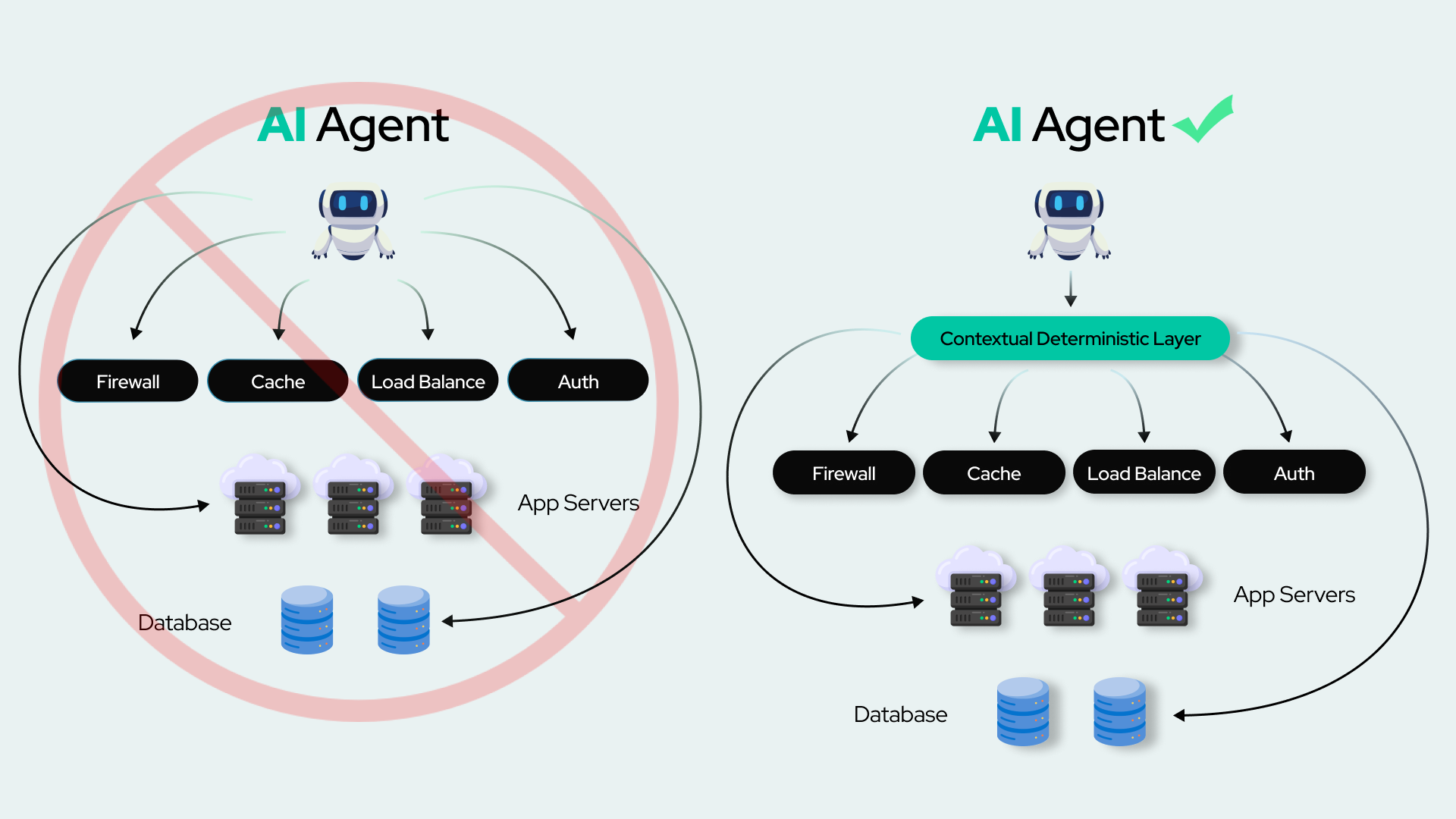
What's needed is a unified layer that provides: comprehensive context, validates actions, and safely executes commands—bridging the gap between AI intent and infrastructure reality.
MonkOS: The unified layer for self-running software
This is exactly what we've built with MonkOS. MonkOS, is a unified orchestrion layer, that serves as the foundation for our autonomous DevOps agents.
Context is King
MonkOS is context aware of the entire system at all times - from application internals and dependencies to infrastructure and environment state. It has the complete picture of all components in motion and their interactions, not just static code (like a coding assistant would). MonkOS is tracking thousands of parameters and processes in real-time throughout the entire lifecycle of an application.
This context is further and easily expandable by Monk packages. Our library of 200+ ready-made packages for databases, services, and more each contain operational knowledge—like playbooks that teach MonkOS exactly how to deploy and run every specific component. The packages are fully composable meaning that once they are integrated in the system they work seamlessly with other all components.
Trust but validate
Since MonkOS has a unified the context of the entire state it can act as a data validation layer. MonkOS enforces policies, validates each step before execution, and prevents mistakes by understanding logical relationships between actions and state. When critical actions arise, MonkOS stops potential mistakes and informs the AI layer for safe self-correction.
(Agent) Idea needs execution
AI should operate at a higher level - making plans, determining what needs to be done, and communicating in natural language like "deploy this application with these settings." However, AI should never directly execute critical infrastructure commands. MonkOS is a separate, deterministic execution layer that translates those plans into specific technical actions and handles the implementation details safely.
Monk is live in your VS Code
With Monk, we're not just building another DevOps tool - we're fundamentally changing how software delivers value. By combining AI agents with the robust foundation of MonkOS, we've created a system that doesn't just help developers run software - it enables software to run itself.
Monk is live. Check out where we are heading on our roadmap.
Install Now and Get your invite !
Nina & Marcin & Monk team

